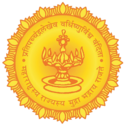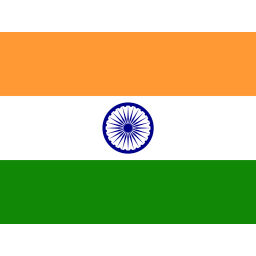Address by Governor at the inauguration of the NSS camp on Swachch Bharat Abhiyan organized by Vasantrao Naik Marathwada Krishi Vidyapeeth, Parbhani
Address by Shri CH. Vidyasagar Rao, Governor of Maharashtra at the inauguration of the NSS camp on Swachch Bharat Abhiyan and Exhibition on University activities organized by Vasantrao Naik Marathwada Krishi Vidyapeeth, Parbhani at 11 am on 11th February 2016
Hon’ble Guardian Minister, Hon’ble Minister of Agriculture, Hon’ble Member of Parliament, Hon’ble Members of State Legislature, other elected representatives, Dr B Venkateswarlu, Vice Chancellor, Vasantrao Naik Marathwada Krishi Vidyapeeth, the Dean, members of Boards of Authority of the University, Dr Umakant Dangat, Divisional Commissioner, Members of Faculty, staff, NSS volunteers, NCC Cadets, students, invited farmers, sisters & brothers,
आज वसंत राव नाईक मराठवाडा कृषि विद्यापीठाला भेट देऊन, तसेच आपणा सर्वांना भेटून खूप आनंद वाटला.
I was very happy to inaugurate the Swachch Bhaarat Abhiyan organized by the University and to witness the Exhibition ‘Umed’.
I was pleased to note that apart from members of faculty and students, volunteers of the National Service Scheme and cadets of NCC are present in the audience. Together all of you are the strength of India.
I think if the youth of the country, including NSS volunteers and NCC Cadets decide to make India neat and clean, nothing can stop us from achieving the goal of Swachh Bharat by the year 2019.
The Cleanliness campaign is an excellent initiative and I do feel that the University must adopt a few prominent places or villages where in you can motivate the people for keeping their surroundings and environment clean and green manner. Like wise, you can disseminate the agricultural technologies through your meetings with people. I am sure such an initiative will have a demonstrative effect on society.
In his Independence Day Speech, the Hon’ble Prime Minister has announced renaming the Agriculture Ministry as ‘Agriculture and Farmers’ Welfare Ministry’ with a view to take care of the farming community’s needs as well as the personal problems faced by them. As a matter of fact, the basic mandate of Agricultural Universities in the State was, and remains, to serve the farmers.
I appreciate the initiative of the University in organizing the programme ‘Umed’ meaning new hope to the distressed farmers of the region. I do feel that the University should organize such exhibitions showcasing its achievements to the farmers at least once in 6 months at different places.
I congratulate the Vasantrao Naik Marathwada Krishi Vidyapeeth for organizing the Swachch Bharat Abhiyan and also for putting up an Exhibition to highlight the work and achievements of the University to the farmers and the people at large.
Dear students,
The agriculture sector in India continues to be the lifeline of our people and a very important sector in our economy. Even though Agriculture contributes only 13.7 per cent to the national GDP, more than 50 per cent of the population is dependent on agriculture for livelihood support and it is going to remain so in the near future.
You are acquiring higher education in Agriculture at a time when India is undergoing several transformative changes. Growing population, growing urbanization, changing lifestyles and climate changes are creating new challenges for our agricultural research system. As one of the largest States in India, Maharashtra has its unique set of challenges which need to be addressed urgently.
The population of Maharashtra is 11.24 crore. This means, Maharashtra’s population alone is roughly four times the population of Australia ! Even the most populous country in the European Union, – Germany has 8 crore population, much less than Maharashtra’s population. That shows the vastness of our problems and the magnitude of the challenges before us.
Secondly, Maharashtra is one of the most urbanized States in the country. In a few years’ time, almost half the population of Maharashtra will be residing in urban areas. The process of urbanization is accompanied by diversion of agricultural lands for non-agricultural purposes.
Thirdly, we have been witnessing drastic climatic changes in the country which are manifesting in the form floods and heavy rains on one hand and recurring droughts on the other hand. In recent years, Marathwada and other parts of Maharashtra have borne the maximum brunt of drought, in consecutive years.
In the coming years, three of our biggest challenges would be food security, water security and energy security. A healthy agriculture sector is pivotal to ensure food security of the nation and the State.
If I have to list the most important problems that trouble the agrarian economy, I would mention the following: shrinking per capita land holding, depletion of under ground water sources, vagaries of monsoons and climatic changes, poor irrigation facilities, very low mechanisation, excessive dependence on chemical inputs, very poor post harvest infrastructure and processing facilities.
Even though India is the second largest producer of fruits and vegetables in the world, the value addition to this produce is just 7 per cent and processing only around 3 per cent of production. Almost 98 per cent of farm produce is sold as it is harvested. Apart from this, more than 25 per cent of production is lost during harvest and post- harvest operations.
Our agrarian sector operates on many paradoxes. To name a few: On one hand we have large number of people in the rural areas dependant on daily wages, but on the other hand, there is acute shortage of labour for agricultural operations. Similarly, there is bountiful of production in certain years, but low net farm income for the farmers.
Solution to these problems can come only through a concerted and integrated action from the research institutions, government and the farmers, themselves. First of all, we need to prepare water budgets of each village accounting for the rainfall, the amount of run off and based on that a concrete action plan for retaining of water in situ in the farm, recharging of aquifers and ex situ in the storage structures.
You may be surprised to know that maximum amount of rain water is lost in run off. The University must make intense efforts for spreading this knowledge and like wise the agriculture department should draw up detailed action plans with the participation of the farmers.
Maharashtra has launched an ambitious programme, Jalayukta Shivar Yojana, to harvest rain water. What we need, is a more focussed and integrated plan of harvesting rainwater, that also ensures judicious use of this stored water through micro irrigation.
The Government has launched a major program called Make in India with emphasis on Manufacturing sector. I request the Agriculture Universities and the Technological institutes to take up a mission for developing appropriate agricultural, grading, processing and packaging machinery suited for Indian conditions and develop necessary tie-ups with the industry for manufacture. In fact, I would like to suggest that the students must think of taking up start up ventures.
Having talked about the water conservation and mechanisation I would like to highlight the importance of developing new varieties and agronomic techniques that can withstand drought and other climate related abnormalities. We also need technologies and methods for post-harvest processes like grading, storage, processing and packaging. I want agriculture universities in Maharashtra to become the dynamic centers of innovation and excellence.
Food processing is an area that has remained largely untapped. I wish to appeal to you, to become entrepreneurs and create agro based startup ventures. I want you to conquer the global markets and make Brand India a global name through your efforts.
Dear Friends,
Agriculture shall not be limited to crop cultivation. It has to be combined with animal husbandry. Crops cultivation alone without animal husbandry will make agriculture a losing proposition. Milk production, poultry, goats and sheep farming etc shall be an integral part of every farm. No doubt, there are issues related to availability of the services of labour availability and animal science experts, marketing issues etc. However, it is necessary to find solutions through collective and community efforts.
Dear friends,
The news of farmers’ distress pains me a lot. I want to tell you that you have the power and the potential to wipe out the tears of every affected family by transforming agriculture and enriching our farmers. I would appeal to you to involve yourself in village level extension activities. I will also call upon the members of the faculty to engage actively in extension programmes and generate hope among the farmers who are in difficulty. We need to develop a strong conviction that agriculture sector can be a strong force in the economy and that with concerted action we can overcome all the challenges.
I feel happy that I could interact with you and share some of my concerns as Governor and as Chancellor. I congratulate the University and I do hope that it will maintain the momentum of Swachh Bharat Abhiyan and further enhance its engagement with farmers.
Thank you
Jai Hind ! Jai Maharashtra !!





